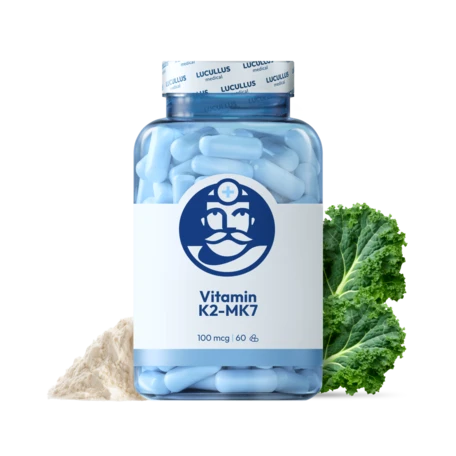

COLLAGEN MANGO
Nutritional value
| Active ingredient | In daily dose | % Ref |
|---|---|---|
| Hydrolyzed fish collagen | 5000 mg | - |
| Vitamin C (ascorbic acid) | 1000 mg | 1250.00% |
| Hyaluronic acid | 100 mg | - |
| Vitamin E (DL-alpha-tocopheryl acetate) | 12 mg | 100.00% |
Ingredients: hydrolyzed fish collagen, vitamin C (ascorbic acid), hyaluronic acid, vitamin E (DL-alpha-tocopheryl acetate), flavor enhancer: mango flavor, acidity regulator: citric acid, color: beta-carotene, sweetener: steviol glycosides.

Description
Awaken your beauty, discover younger-looking skin and ease of movement with Mango Collagen.
With age or increased stress on connective tissues, the body naturally loses collagen, while the skin loses moisture and the joints cry out for support. Collagen Mango combines hydrolysed fish collagen, hyaluronic acid and powerful antioxidants – in a refreshing mango flavour – to support skin elasticity, hydration and joint mobility when you want to slow down time and the signs of ageing.
Key product benefits
- More resilient skin – hydrolysed fish collagen improves tissue elasticity and structure.
- Intensive hydration – hyaluronic acid binds water in the tissues and helps maintain healthy skin tone and suppleness.
- Antioxidant protection – vitamins C and E strengthen cells, protect against free radicals and promote collagen production and a youthful appearance.
- Joint and ligament support – collagen strengthens connective tissues and helps maintain comfort during movement.
- Delicious tropical experience – the mango flavour encourages regular use of the supplement and makes your wellness routine more enjoyable.
Composition and effects of individual ingredients
- Hydrolysed fish collagen – an effective form of collagen with high bioavailability, supports the structural renewal of the skin and connective tissue.
- Hyaluronic acid – ensures moisture in the dermis, fills the intercellular space and softens the skin texture.
- Vitamin C – contributes to collagen formation and, as a powerful antioxidant, protects cells from oxidation.
- Vitamin E – protects cell membranes from oxidative stress, promotes cell vitality and regeneration.
- Natural mango aroma – refreshes and contributes to a delightful experience.
Why it works
Collagen production in the body gradually decreases, which manifests itself in a loss of skin firmness and a decrease in the elasticity of connective tissues. Hydrolysed collagen contains broken down collagen peptides, which are better absorbed by the body and more effectively used as building material for tissues – in the regeneration of hair, skin and joints. Vitamin C acts as an essential component for the enzymes prolyl hydroxylase and lysyl hydroxylase, which ensure the stable triple helix of collagen. Hyaluronic acid acts as a moisture reservoir in tissues – it helps maintain optimal moisture levels, improving the visual and functional condition of the skin and joint surfaces. Antioxidants such as vitamin E protect cells from damage by free radicals that degrade collagen fibres. This combination creates a synergistic effect – for tissue renewal, hydration and protection from the inside out.
Recommended use and production quality
Take one dose of the powdered nutritional supplement daily, regularly, ideally with food to promote absorption. The product is manufactured in Slovakia in modern facilities, GMO-free, with strict control and testing of efficacy, quality and purity.
Treat your body to a tropical dose of care – a combination of scientific precision and fruity freshness. Your skin, hair and joints will experience the regeneration they truly deserve.




























